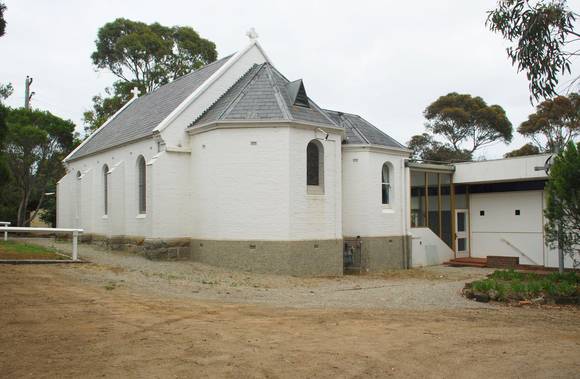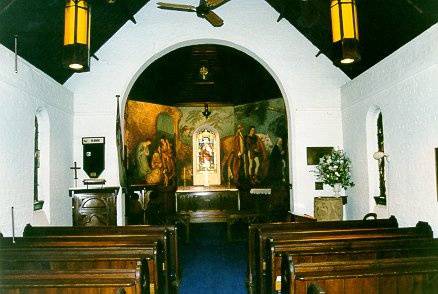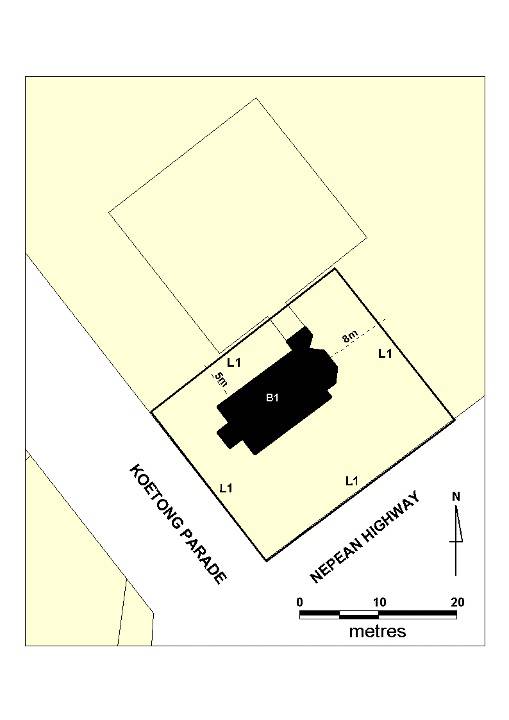| Back to search results » | Back to search page » |
|
ST JAMES THE LESS ANGLICAN CHURCH
Location105 KOETONG PARADE MOUNT ELIZA, MORNINGTON PENINSULA SHIRE
File Number606491LevelRegistered |
|
Statement of Significance
What is Significant?
St James the Less Anglican Church is a small brick church built in 1865.
The building combines Gothic massing with round headed windows in a
Primitive Gothic style. The church was constructed using locally made
bricks on a granite base and was designed by William Grover. The apse
and vestry, added in 1913, are brick on brick foundations. St James the
Less Anglican is a simple church and an intact representation of
churches of this era. The brickwork of the church has been over painted.
The five-panel altarpiece 'Adoration of Angels, of Shepherds, of Kings'
1931 painted for St James the Less Anglican Church by the artist Violet
Teague. The painting, in oils on canvas panels, was designed to fit into
the apse of St James the Less.
How is it Significant?
The church of St James the Less with its altarpiece paintings is of
aesthetic significance to the State of Victoria.
Why is it Significant?
St James the Less Anglican church is a small brick church built in
Gothic style in 1865, which has associations with many of the early and
notable residents of the Mornington Peninsula.
The five panel altarpiece 'Adoration of Angels, of Shepherds, of Kings'
1931 by Violet Teague is aesthetically significant because it is a rare
example of an altarpiece in situ in the State. It is one of only five
altarpieces executed by Teague known to survive in Victoria and one of
only two of her altarpiece paintings that remain in situ. The five-panel
painting in oils on canvas panels was designed to fit into the apse of
St James the Less church, with panels designed to accommodate openings
for a door and a window. This painting is significant for its unusual
representation of the subject matter, an allegorical painting of the
Nativity and the scale of the work. The altarpiece 'Adoration of Angels,
of Shepherds, of Kings' was Violet Teague's largest and most ambitious
religious work. The altarpiece is a rare example of a religious painting
purpose-designed for a church. Although the production of religious art
is not unprecedented in Australia it is highly unusual for work to be
specifically designed for a place of worship. Violet Teague, who was
born in Melbourne in 1872 and died at Mt Eliza in 1951, is one of the
many Australian women painters whose extensive body of work has been
neglected by history until recently. Her oeuvre included detailed oil
paintings and portraiture, Japanese influenced woodcuts and prints and
landscape watercolour paintings.
Group
Religion
Category
Church






